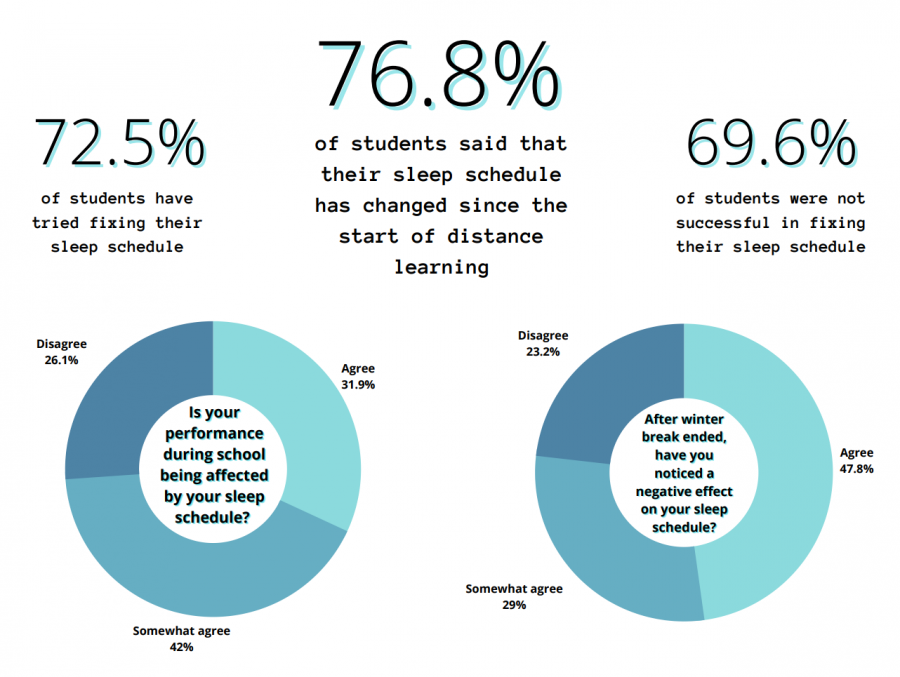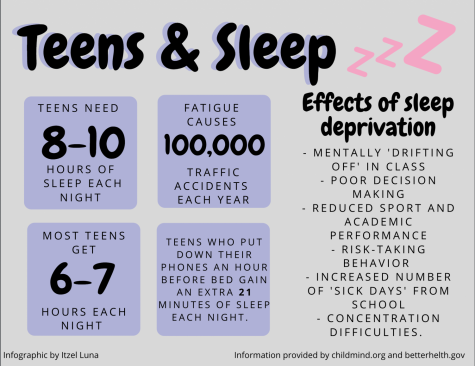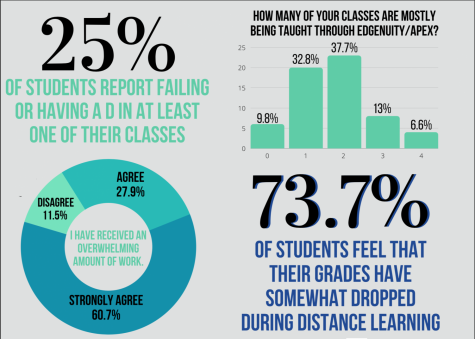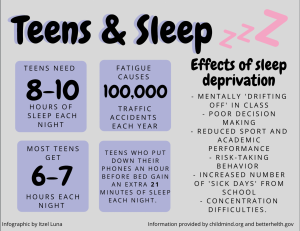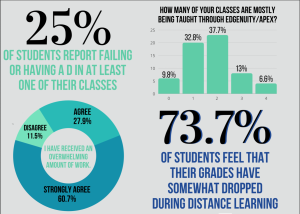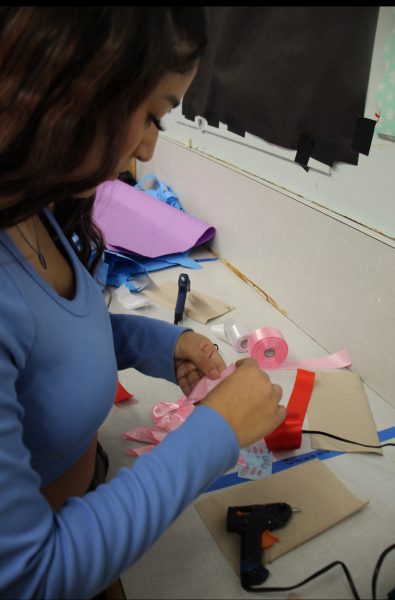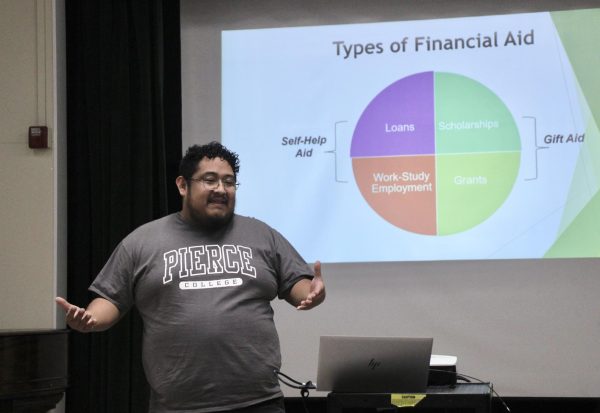Students’ sleep schedule out of sync
Distance learning students have created an unhealthy schedule for themselves. While some have tried to fix it, making the change has not been easy.
In February, 69 DPMHS students responded to a survey about how their sleep schedule has been disrupted during distance learning.
February 19, 2021
As strict quarantine protocols continue to regulate students to learn from home, senior Kevin Castro believes that this routine is the result of his unhealthy sleep schedule.
“I believe my schedule has been affected because of the discipline dependency of staying home,” Castro said.
Quarantine, distance learning and the overall virtual life that all students are pushing through for almost one full year next month, leads to unhealthy sleep schedules. Students like Castro continue to struggle with adjusting to distance learning schedules in the spring semester after months of the same routine. Monotonous days and thrilling nights restrain students from conscious thoughts during daily Zoom meetings.
To think naps during the day would be of assistance to students during the day to balance the cycle, junior Allison Puc proves otherwise.
“The worst part is definitely the headaches and dizziness. I feel so unmotivated,” Puc complains. “When I take a nap, I wake up with the worst headache.”
With technology being used throughout most of the day, it’s tough to keep up with daily assignments because of low motivation due to the lack of a healthy sleep cycle. While the nocturnal lifestyle may be deleterious, students like sophomore Dashiell Dekker experience more eventful nights rather than the daytime.
“I usually use time during the night to talk to my friends,” Dekker said.
During the night, some students use the time for themselves and reconnect with their well being. Others simply take advantage of the alone time. Puc revealed that she is a candidate in this category.
“I enjoy the peace and quiet,” Puc said. “I love how no one is there to tell me anything and I can just chill with myself.”
Although the silence and self-reconciliation may be temporarily beneficial for one’s mental health, this lifestyle poorly affects both your mental and physical health during the day. Particularly during a pandemic, stress and other mental health factors are blended in with insomnia, creating a more significant situation of irregular sleep. Receiving healthy cycles of sleep also helps with your immune system and help with sustaining low blood pressure, according to an article from Sleep Health Solutions. The basics of a healthy lifestyle and sleep cycle include around 7-9 hours of sleep each night, according to an article from Sleep Foundation. Sleeping at night leaves you fully awake in the morning, which keeps you fully functioning during school hours.
Reverting back to a healthy cycle isn’t so easy, Dekker admits that it’s tough to get back to that lifestyle.
“I tried at the beginning of the year,” Dekker confessed. “It’s hard to revert back to my old schedule because I’m so used to the new one.”


